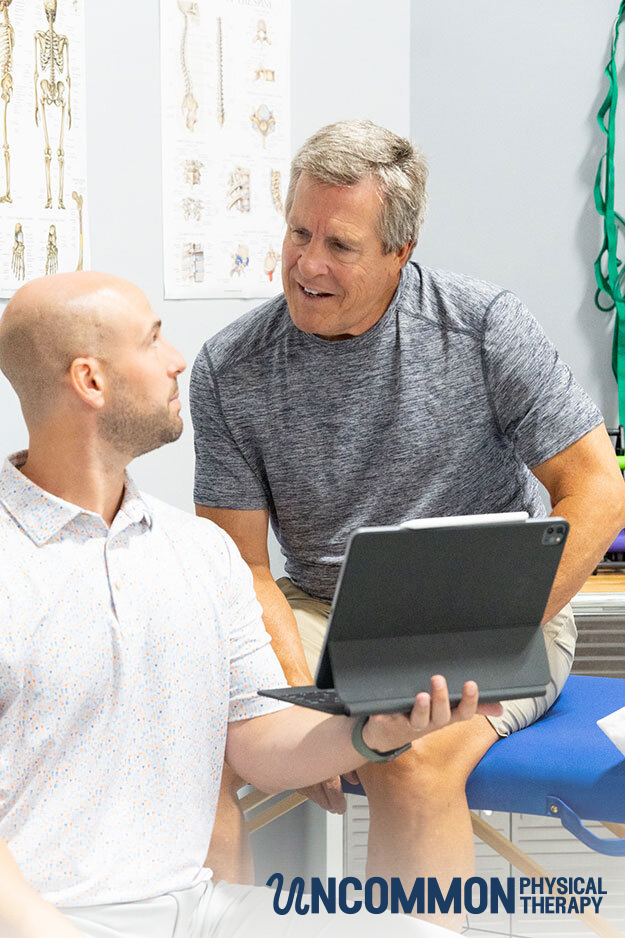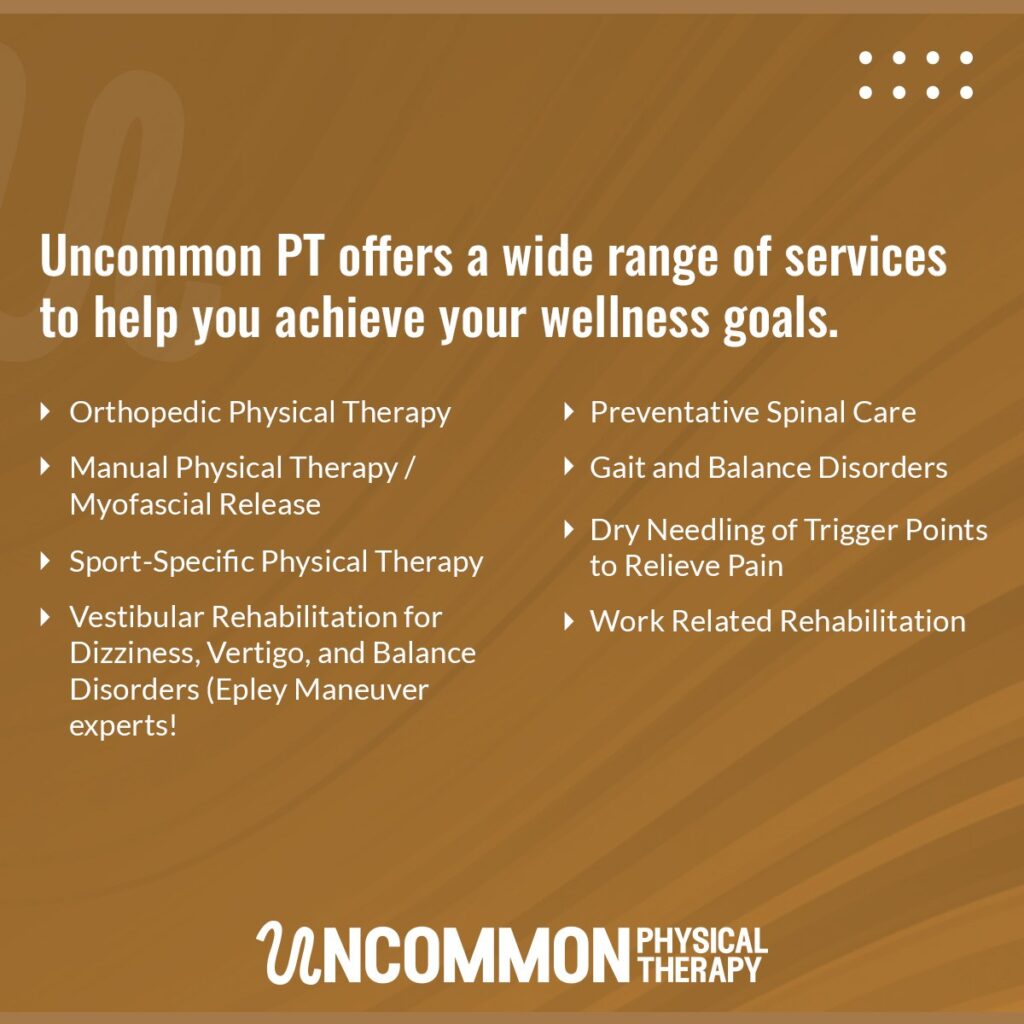Temporomandibular joint (TMJ) disorders can cause pain and dysfunction in the jaw joint and surrounding muscles, leading to symptoms like pain, clicking, and limited movement. Physical therapy offers a treatment approach for managing TMJ disorders. Through exercises, manual therapy, and education, we can reduce pain and improve jaw function for individuals experiencing these issues.
We treat all general aches and pains! If you went to your doctor and they recommended PT, we most likely treat your diagnosis or will help you find a PT who does if we do not. We are a knowledgeable, caring team that will take care of you from start to finish. Come on in and get your questions answered — we can’t wait to meet you.
If you’ve ever had pain or discomfort in your jaw, neck, or around your ears, you might have experienced TMJ dysfunction, or temporomandibular joint dysfunction. This condition can cause pain and problems with how your jaw moves. While it can feel uncomfortable, physical therapy can help reduce the pain and improve jaw movement.
What is TMJ dysfunction?
The temporomandibular joint connects the jaw to the skull and is located in front of your ears on each side of your face. The joint allows you to open and close your mouth, chew, talk, and even yawn. When this joint doesn’t work correctly, or if the muscles around it become tight or irritated, it leads to TMJ dysfunction.
What are some TMJ dysfunction symptoms?
Some common symptoms of TMJ dysfunction include:
- jaw pain or tenderness
- clicking or popping sounds when you open or close your mouth
- difficulty chewing or opening your mouth wide
- pain around your ears or neck
- headaches or dizziness
What causes TMJ dysfunction?
TMJ dysfunction can happen for many reasons. Common causes of TMJ dysfunction include:
- Teeth grinding or jaw clenching, typically associated with stress or anxiety
- Injury or trauma, such as a car accident, sports injury, or recent dental work
- Arthritis, although this is a much less common cause of TMJ dysfunction
How can physical therapy help TMJ dysfunction?
Studies have shown that physical therapy can significantly reduce the pain and discomfort associated with TMJ dysfunction. Physical therapists are trained to help you with exercises, stretches, and techniques to reduce pain from TMJ dysfunction and improve the jaw’s movement.
Improving jaw movement
Through physical therapy, you can learn specific exercises to move your jaw better. These exercises may focus on stretching the muscles to reduce tightness, strengthening the muscles to make them function better, and improving coordination so your jaw moves smoothly without pain or clicking.
Reducing pain and tension
TMJ dysfunction often causes pain and tension in the jaw muscles. A physical therapist can use manual therapy techniques, such as soft tissue work or joint mobilization, to relieve this tension, decreasing the pain you might feel when you open your mouth or chew.
Exercise
Exercises for jaw pain are tailored to each patient, and may involve jaw specific exercises, or exercises to strengthen or loosen the neck, shoulder, and spine. Additionally, general exercises that move the whole body, such as aerobic exercises, can help to reduce stress and some pain, either of which could be contributing to TMJ dysfunction.
Relaxation techniques
Since stress is a common cause of jaw clenching and teeth grinding, physical therapists can teach you ways to relax your jaw as well as managing stress levels overall. Learning how to manage stress and tension through relaxation techniques, such as deep breathing, meditation, or mindfulness strategies can make a big difference.
Education on habits and lifestyle changes
Sometimes, habits such as chewing gum too much or biting your nails can make TMJ dysfunction worse. A physical therapist can help you identify these habits and suggest alternatives. They can also provide advice on how to sleep better or which foods may aggravate your jaw.
Treatment for TMJ dysfunction
If you think you might have TMJ dysfunction, talk with your primary care provider or dentist about your symptoms. It can be helpful to take notes about your pain or jaw mobility issues so you are prepared for any questions they may have. Your primary care provider or dentist can help determine if physical therapy is right for you.
Invest in your jaw comfort today! Explore straightforward strategies to alleviate TMJ discomfort and enhance your jaw movement through physical therapy. Schedule your appointment in Charlotte today at (704) 803-8038. For more inspiration and tips, you can follow us on Instagram.
Reference: [https://www.brownhealth.org/be-well/tmj-what-it-and-how-physical-therapy-can-help]








